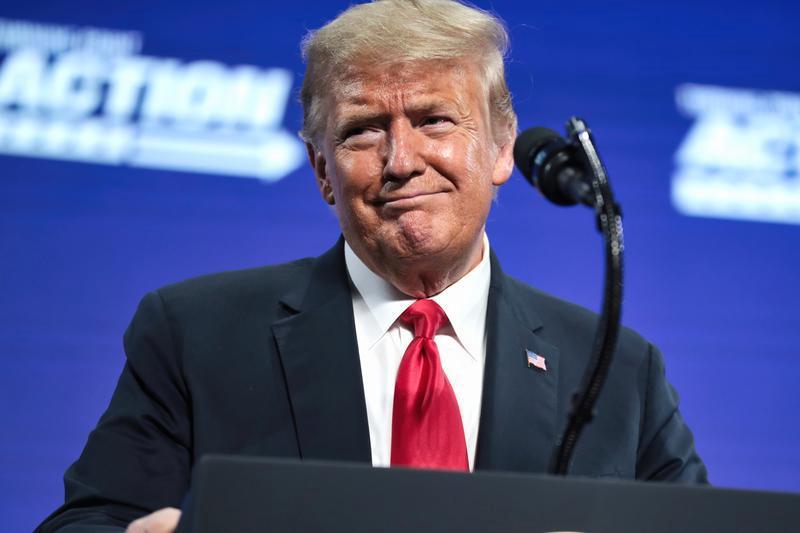President Donald Trump faced widespread criticism on September 29, 2025, after appearing to struggle with his memory during a White House dining room speech alongside Israeli Prime Minister Benjamin Netanyahu. The president’s remarks about world leaders drew immediate scrutiny from observers and media outlets.
During the joint appearance with Netanyahu, Trump made comments about his knowledge of various world leaders that highlighted apparent confusion. “But I’ve known them actually for a long time, and they’re in many cases really great men,” the president stated, adding additional remarks about gender representation among world leaders that further fueled criticism.
The meeting between Trump and Netanyahu focused primarily on a comprehensive 20-point peace plan for Gaza that the White House had developed. Trump announced that Netanyahu had agreed to support the U.S.-sponsored proposal aimed at ending the nearly two-year conflict in the Palestinian territory.
The peace framework includes provisions for an immediate ceasefire, the release of Israeli hostages held by Hamas in exchange for Palestinian prisoners, a staged Israeli withdrawal from Gaza, Hamas disarmament, and the establishment of a transitional government led by an international body. Trump indicated the plan would create a “credible pathway to Palestinian self-determination and statehood” if certain conditions were met.
Netanyahu expressed support for the proposal during the White House meeting, stating it would achieve Israel’s war objectives by bringing back all hostages, dismantling Hamas’ military capabilities, and ensuring Gaza never again poses a threat to Israel. However, the Israeli prime minister maintained his opposition to Palestinian statehood, insisting Israel would “forcibly resist” such developments.
Trump established a three to four-day deadline for Hamas to respond to the peace proposal. The president warned that rejection of the deal would lead to “a very sad end” for the militant group, while expressing optimism that acceptance would result in significant progress toward regional peace.
Qatar’s foreign ministry confirmed that Hamas was studying the White House proposal “responsibly,” though the group had not received the plan through official channels initially. A senior Hamas official later told the BBC that the organization was likely to reject Trump’s proposal, arguing it “serves Israel’s interests” and “ignores those of the Palestinian people.”
The Hamas leadership reportedly objects to key provisions requiring the group to disarm and surrender weapons, as well as the deployment of an International Stabilization Force in Gaza, which they view as a new form of occupation. The group’s military commander in Gaza, Ez al-Din al-Haddad, was described as determined to continue fighting rather than accept the proposed terms.
Several Arab and international leaders expressed support for Trump’s diplomatic efforts. Egypt, Jordan, Qatar, Saudi Arabia, the United Arab Emirates, Pakistan, Indonesia, and Turkey issued a joint statement welcoming the president’s leadership in attempting to end the Gaza conflict. Canadian Prime Minister Mark Carney indicated his country’s readiness to support sustained humanitarian aid to Gaza under the framework.
The meeting marked Netanyahu’s fourth visit to the White House since Trump returned to office in January 2025. The timing coincided with increased international pressure on Israel, as several Western nations had formally recognized Palestinian statehood the previous week, moves that Trump had sharply criticized.
Critics of the peace plan argued it failed to adequately address Palestinian representation and self-determination. Analysts described the proposal as lacking sound details and containing contradictions that could derail implementation efforts.
The plan calls for the establishment of an international stabilization force to handle security in Gaza and the creation of an international transitional authority to govern the territory. It promises that Palestinians would not be forcibly removed from Gaza and includes provisions for reconstruction efforts.
Israeli public opinion polls showed 71 percent of respondents backing the American plan, though only 12 percent expressed confidence in its implementation. Opposition leaders in Israel, including Benny Gantz, Naftali Bennett, and Yair Lapid, endorsed the proposal while acknowledging its challenging nature.
Within Netanyahu’s coalition government, Finance Minister Bezalel Smotrich and National Security Minister Itamar Ben-Gvir raised objections to aspects of the plan, particularly regarding potential Palestinian statehood provisions they argued could endanger Israel’s existence.
The diplomatic initiative represents Trump’s most significant effort to address the Middle East conflict since returning to office, following campaign promises to quickly resolve the Gaza situation. The president had repeatedly claimed that a peace deal was imminent in previous months, though those efforts had failed to materialize into concrete agreements.
